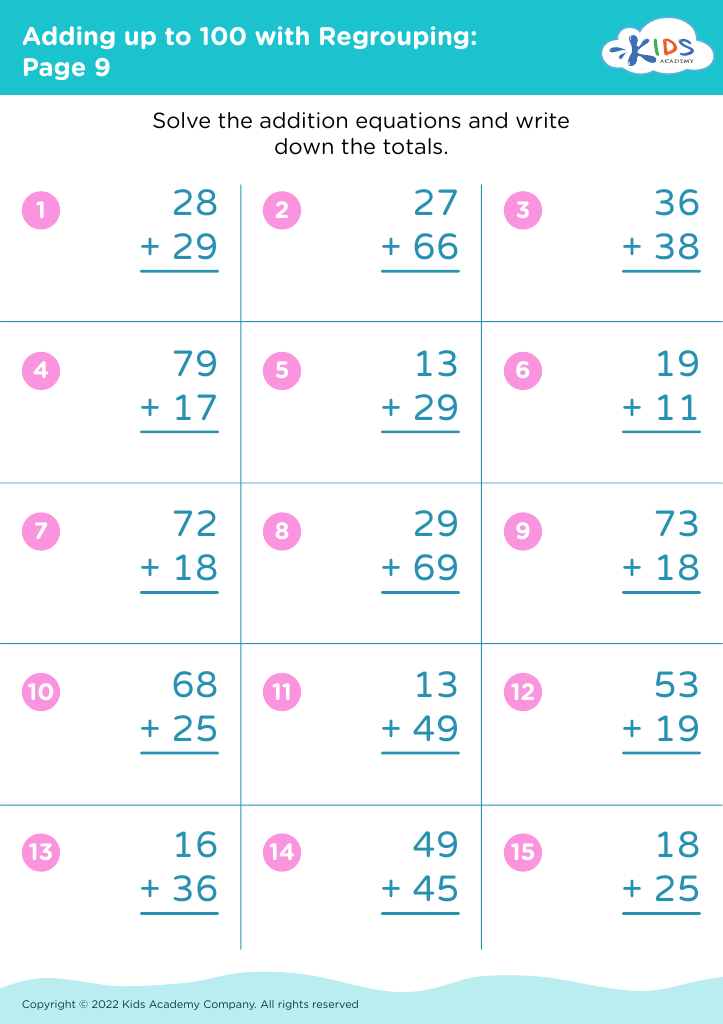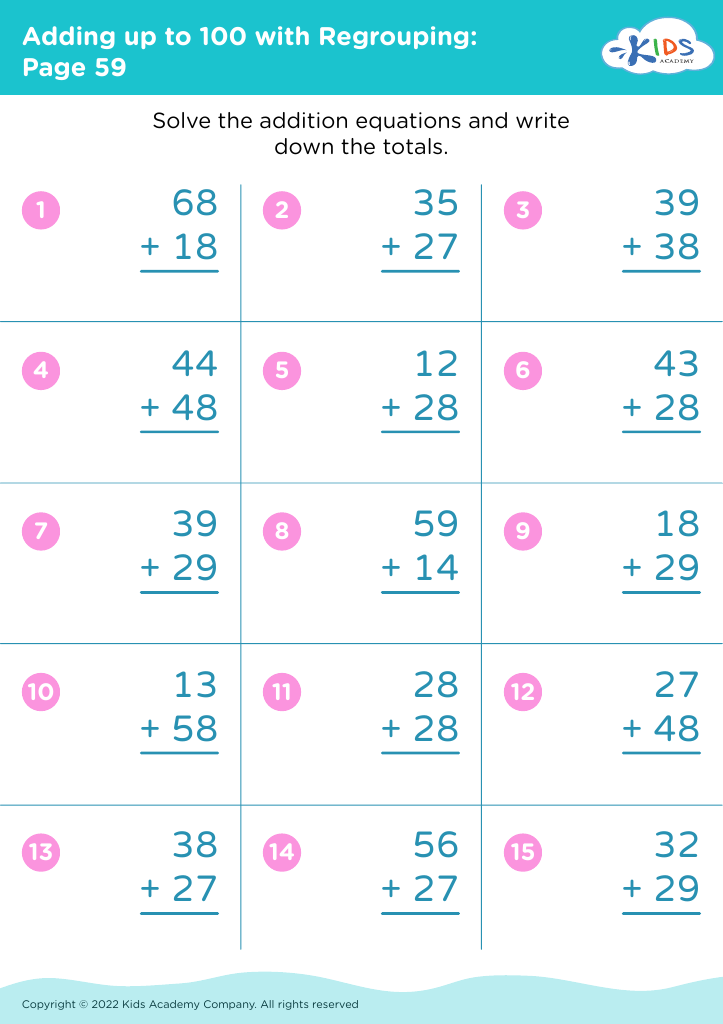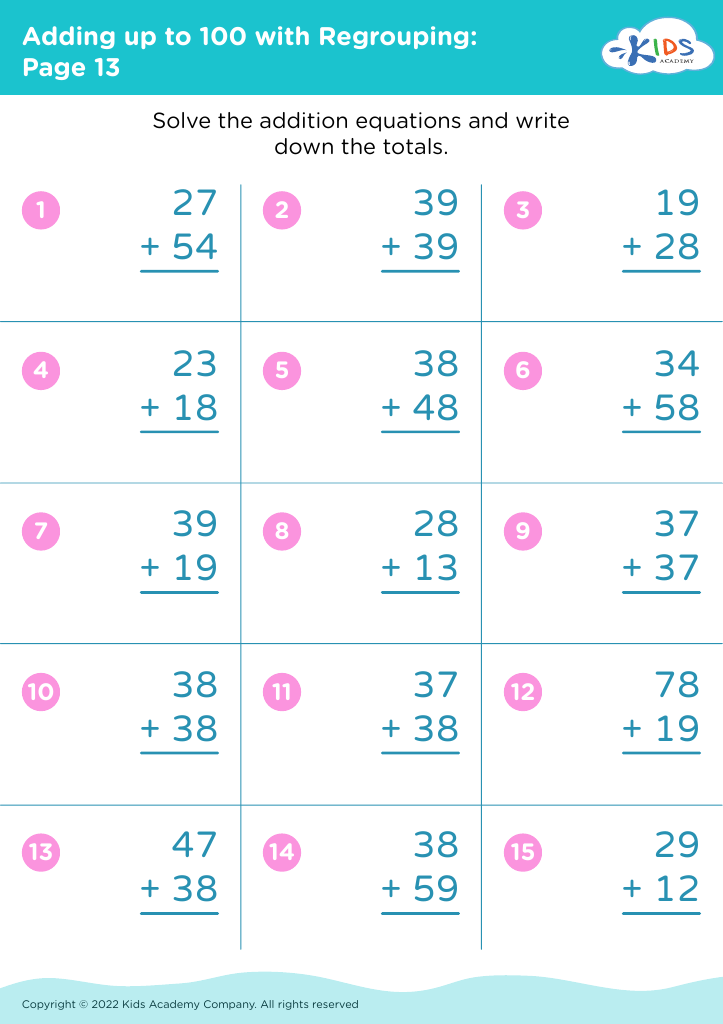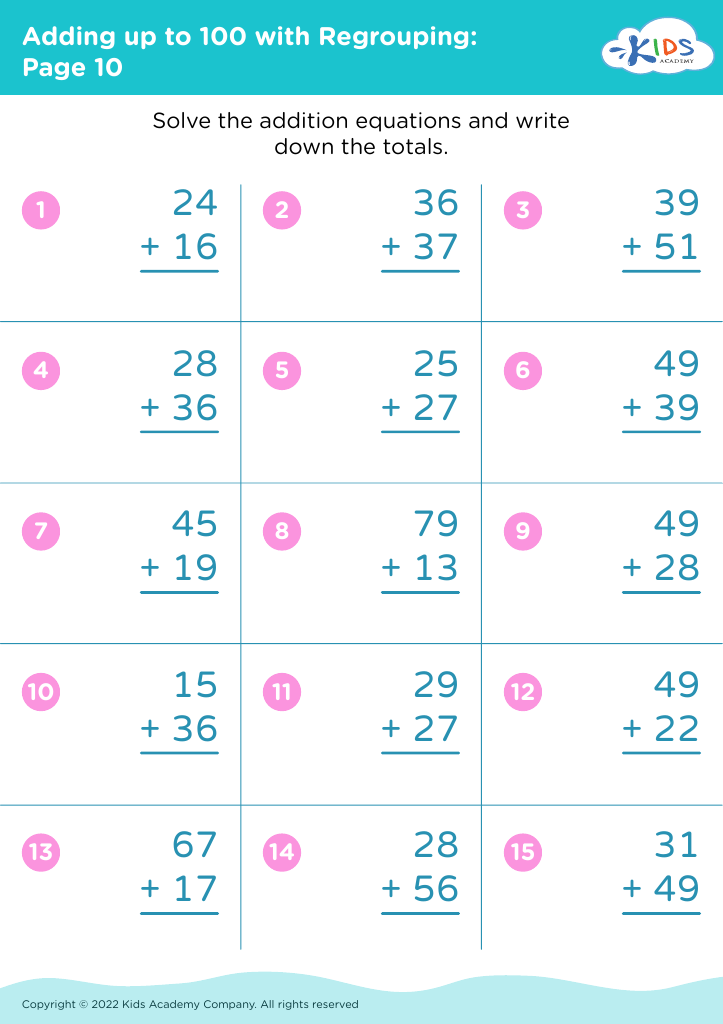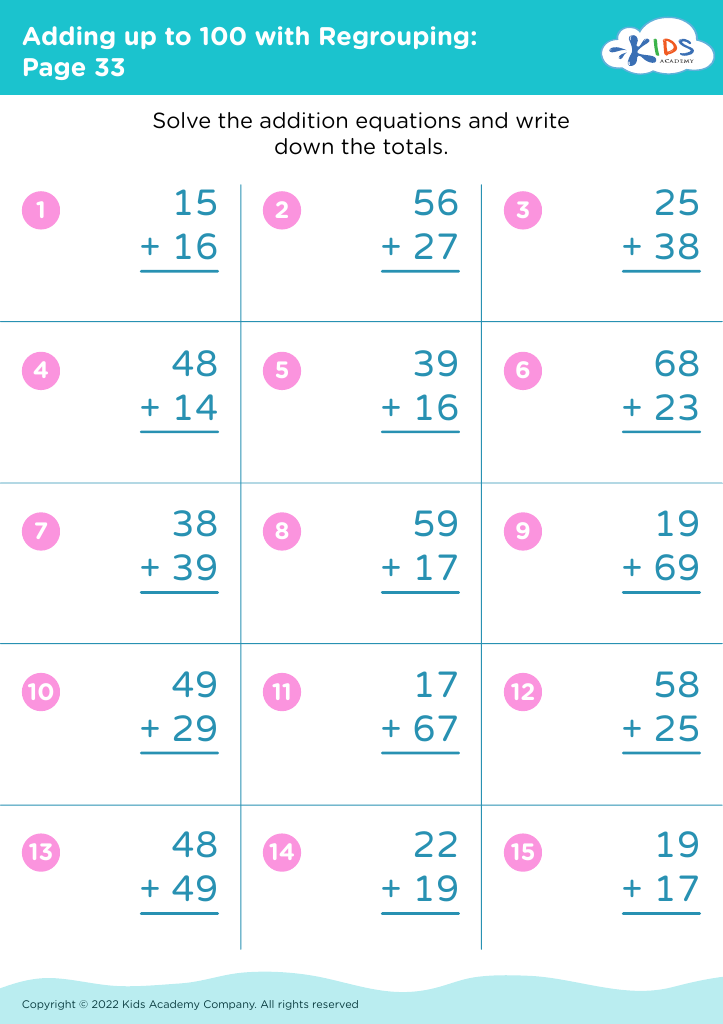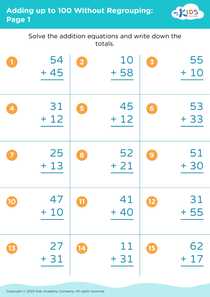Understanding fractions Adding up to 100 with Regrouping Worksheets for Ages 7-8
16 filtered results
-
From - To
Discover our engaging worksheets on "Understanding Fractions: Adding Up to 100 with Regrouping" tailored for children aged 7-8. These worksheets provide a fun and interactive approach to mastering the concept of fractions while enhancing critical addition skills. Students will explore concepts through hands-on exercises that challenge them to simplify, combine, and regroup fractions to solve problems. This resource not only strengthens their arithmetic abilities but also builds confidence in handling fraction-related tasks. Perfect for classroom or home learning, our worksheets make the process enjoyable and effective, ensuring young learners grasp essential mathematical concepts in a supportive environment. Start the journey to mathematical mastery today!
Understanding fractions and the concept of adding up to 100 with regrouping is crucial for children aged 7-8 because it lays the foundation for their mathematical skills and logical reasoning. At this age, students are transitioning from basic arithmetic to more complex operations, making it an ideal time to introduce these concepts.
Fractions form an essential part of everyday life, from cooking to sharing, and understanding them helps children interpret portions and ratios. When students grasp the idea of adding fractions and regrouping totals to 100, they enhance their number sense and enable themselves to perform more advanced mathematical operations later on, such as adding unlike fractions or understanding decimals.
Moreover, these skills help develop critical thinking and problem-solving abilities. As children encounter real-world scenarios that require them to think mathematically, solid fraction knowledge becomes instrumental in helping them navigate challenges.
For parents and teachers, focusing on these foundational topics ensures that children build confidence in their abilities. This confidence translates into a positive attitude towards math, encouraging them to tackle future concepts with enthusiasm. Overall, prioritizing understanding fractions and regrouping fosters a love for learning and paves the way for academic success.
